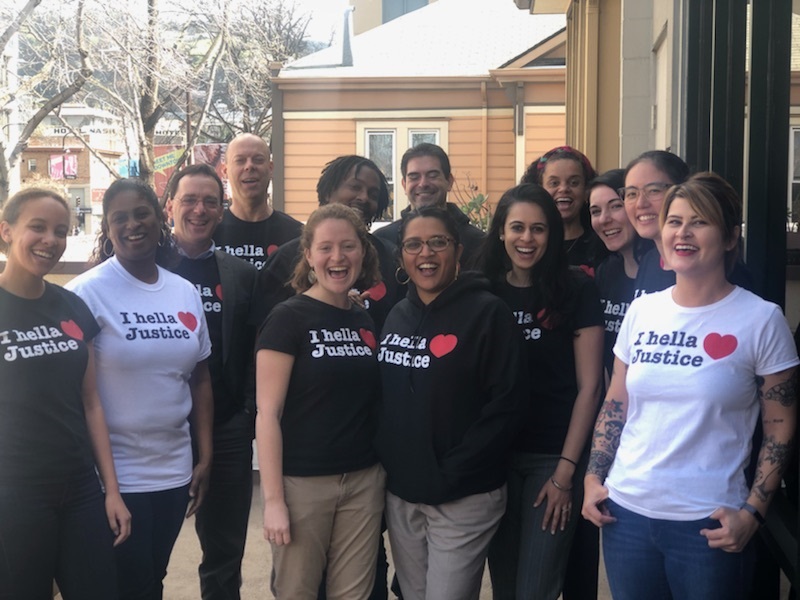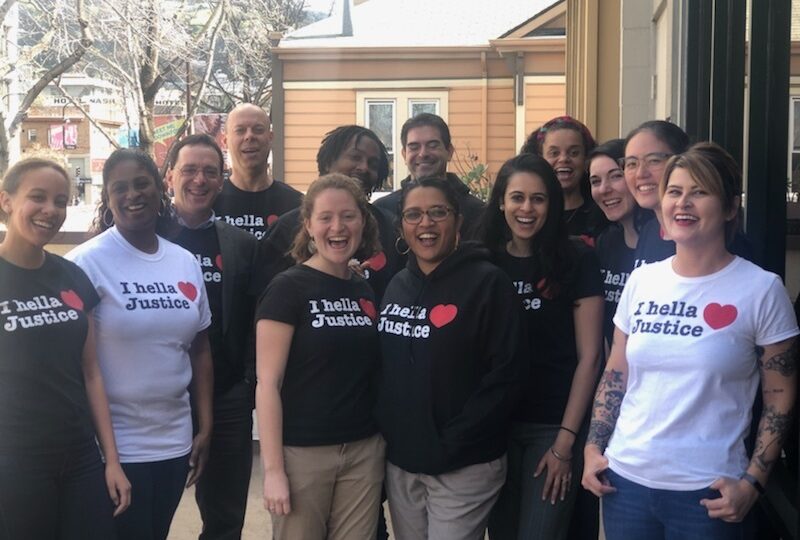
Oscar Lopez, attorney at East Bay Community Law Center’s Education Advocacy Clinic joined us to talk about the mission of EBCLC:
The mission of the East Bay Community Law Center (EBCLC) is to promote justice and build a community that is more healthy, secure, productive and hopeful by providing: 1) legal services and policy advocacy that are responsive to the needs of low-income communities, and 2) law training that prepares future attorneys to be skilled and principled advocates who are committed to finding innovative solutions to the cause and conditions of poverty. The Education Advocacy Clinic is a program at EBCLC that aims to dismantle the school-to-prison pipeline by addressing the multitude of interrelated issues that impact many young people’s ability to thrive. The clinic also provides holistic representation to young people with disabilities in dealing with school discipline and special education matters.
Personally, why are you a part of this organization? What draws you to the work on a personal level?
Too many kids of color get the message that their school doesn’t want them and that they aren’t a part of their school community. One issue that’s hugely motivating to me is the over-presence of law enforcement in East Bay schools, which leads to more arrests of kids at school and stacks the deck against families who are trying to advocate for themselves in discipline matters. When you talk to kids, they tend to say that having police officers at their school doesn’t make them feel any safer at all. I want kids to have everything they need to thrive in schools, and I want schools to be accountable to the demands of the community.
How does EBCLC affirm and celebrate the collective memory, shared histories, social identities, and/or cultures of Oakland’s communities of color?
As an organization, we take all of our cues from the students and families who are leading the fight for a school system that honors the dignity and worth of every child. To me, it’s not just about changing policy, it’s about shifting the dynamics to build community power and a more inclusive school culture. There’s no guide to being a community lawyer. You just have to be creative and listen to what the community wants.
What is the vision that guides your work? What will the world – and specifically Oakland – look like if you are successful?
School issues are often seen as distinct from other civil rights issues, but at EBCLC, we like to say that all policy is school policy. If kids are facing homelessness or eviction, if they can’t get the medical care they need, if they’re worried about a family member’s immigration status, that all impacts a student’s ability to thrive. We want Oakland to live up to its promise of providing “sanctuary” to everyone in our community, and that has to start in our schools.
What will you be focused on for the rest of the year?
Spring can be a vulnerable time for students of color with discipline issues, because schools use the last few months of the year to “clean house” and try to expel the students who they don’t want to return in the fall. We want to hold these schools accountable and do everything we can to make sure students and their families are treated fairly, and that every student’s right to an education is protected. Our strategy is to provide holistic, wrap-around services to kids having problems at school, from representing them in school discipline hearings and juvenile court to connecting them to social work services. We’ve also been working with community leaders to make sure that families know their rights and can teach each other to be strong advocates for their kids.
